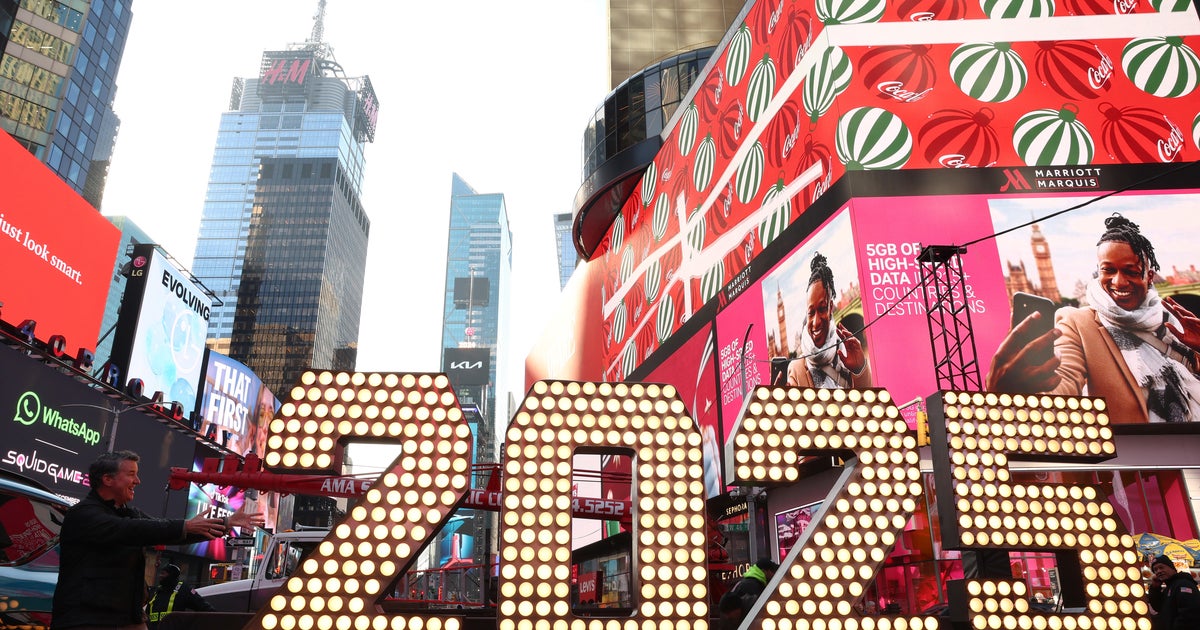Queens Holocaust survivor recounts horrors of Kristallnacht, says she still experiences hate
NEW YORK -- Wednesday night marks the anniversary of Kristallnacht, also known as "The Night of Broken Glass," which marked the start of the Holocaust.
On Nov. 9, 1938, thousands of German Jewish businesses and synagogues were destroyed by the Nazis.
A Queens Holocaust survivor says her home was destroyed that night, and adds even now, decades later, she experiences similar hate.
"This is a piece of the wall from our synagogue, which was supposed to be burned down," Inge Auerbacher told CBS2's Lisa Rozner.
In all, 1,500 synagogues were burned down, 7,500 Jewish businesses were vandalized, 30,000 people were deported to concentration camps.
READ MORE: New Museum of Jewish Heritage Holocaust exhibit presents history through personal stories
Auerbacher was almost 4 years old, but says the trauma of Nov. 9, 1938 was so severe, she remembers Kristallnacht like it was yesterday.
The 87-year-old says the Nazis vandalized her home in a German village near the France-Switzerland border.
"He threw a big rock through a broken window and it nearly hit me," Auerbacher said.
She said she hid in a backyard shed during the violence that broke out on Nov. 9 and lasted through the next day.
"That was the start of the whole Holocaust. It was bubbling underneath," Auerbacher said. "People realized we have to get out. It's going to be really, really bad, but nobody helped."
READ MORE: Rapper Kosha Dillz runs NYC Marathon to raise money for Holocaust survivors
At the age of 7, she was transported to the Terezin concentration camp. Recently, she visited Europe again with a boys choir, and while they were singing a Hebrew song, a glass bottle was thrown at them.
"It was painful," Auerbacher said.
On Wednesday, she shared her story with eighth grade students at the Ramaz School on the Upper East Side.
"A lot of times, we hear survivors who weren't from Germany, so it's really interesting," a student named Gabi said.
"It made me so grateful that we live in a time where we're able to learn and practice our Judaism publicly," a student named Hannah added.
Playwright Steve Fisher facilitated the discussion.
"It's just as important people stand up who are not Jewish because hate has a way if it's not affecting you or your culture or your neighborhood. Now, if you let it go it's going to come around," Fisher said.
A special concert commemorating Kristallnacht will take place at historic Central Synagogue on Thursday.
Composer Michael Shapiro compiled poetry from Sephardic Jews that he discovered while working at the U.S. Holocaust Memorial Museum.
"The poetry is very strong, the poetry of these Mediterranean people whose voices we are capturing because they were silenced," Shapiro said. "It's a warning that all groups are in real danger now."
"Education is important very, very important. Get to know other people," Auerbacher added.
Auerbacher said she hopes to live to 121, so she can keep connecting with people from all backgrounds, learning their stories, and sharing hers, so the Holocaust can never happen again.
The concert mentioned in the piece is called "VOICES" of the Holocaust. Thursday at 7:30 p.m. is the world premiere. It's free to the public and will also be streamed online. For more information, please click here.




